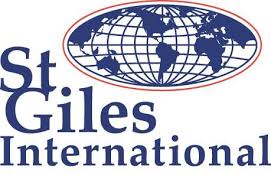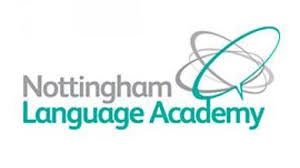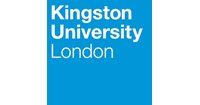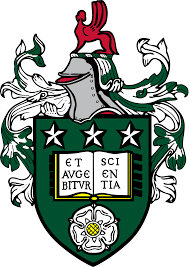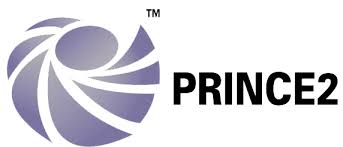
Executive Secretarial Skills, Senior Management Office Management, and Personal Effectiveness
Course ID: 2507210101137EGI
Course Dates : 21/07/25 Course Duration : 10 Studying Day/s Course Location: London, UK
Language: Bilingual
Course Category: Professional and CPD Training Programs
Course Subcategories: Leadership and Management Excellence
Course Certified By: * Projacs Academy
* Professional Training and CPD Programs
Certification Will Be Issued From :
KSA
Course Fees: £8,895.11
Vat Not Included in the price. VAT may vary depending on the country where the course or workshop is held.
Click to Pay
Date has passed please contact us Sales@e-s-hub.com
Course Information
Introduction
The role of executive secretaries and senior management office professionals has evolved significantly over the past decade. Once considered primarily administrative, these positions now demand a sophisticated blend of technical expertise, strategic thinking, and interpersonal skills. In an era where organizations are increasingly reliant on seamless communication and efficient workflows, individuals in these roles serve as the backbone of operational success. They act as gatekeepers, facilitators, and strategic partners to senior leadership, ensuring that organizational objectives are met with precision and professionalism. This course is designed to equip participants with the advanced competencies required to excel in these dynamic roles.
A critical gap exists between traditional training programs and the multifaceted demands of modern executive support roles. Many professionals enter these positions with foundational administrative skills but lack exposure to advanced frameworks such as time management methodologies (e.g., Eisenhower Matrix), stakeholder engagement strategies, or digital tools for workflow optimization. For instance, a case study of a multinational corporation revealed that inefficiencies in scheduling and document management led to a 15% drop in executive productivity. By addressing these gaps, this course empowers participants to transition from transactional contributors to strategic enablers within their organizations.
Mastering the content of this course offers dual benefits—enhancing individual career trajectories while driving organizational excellence. On a personal level, participants will develop heightened confidence, adaptability, and leadership capabilities, positioning themselves as indispensable assets to their teams. Organizations, in turn, benefit from streamlined operations, improved decision-making processes, and enhanced client satisfaction. Drawing on established theories such as Peter Drucker’s principles of effective management and Daniel Goleman’s emotional intelligence framework, the course provides a robust foundation for achieving these outcomes.
Consider the example of Sarah, an executive secretary at a Fortune 500 company, who transformed her role by implementing advanced calendar management techniques and adopting collaborative software platforms. Her proactive approach not only reduced meeting conflicts by 30% but also allowed executives to focus more on high-impact activities. Such real-world applications underscore the transformative potential of the skills taught in this course. Participants will learn to navigate complex challenges, anticipate needs, and deliver exceptional results under pressure.
Industry trends further emphasize the growing importance of executive secretarial and office management roles. With remote and hybrid work models becoming the norm, there is an increased reliance on digital literacy and virtual collaboration tools. Additionally, the rise of artificial intelligence in administrative functions necessitates a deeper understanding of how to integrate technology without compromising human-centric service delivery. This course ensures participants remain ahead of the curve by equipping them with cutting-edge knowledge and practical insights.
Ultimately, this program is not just about enhancing day-to-day efficiency; it is about redefining the perception of executive support roles. By fostering a culture of continuous improvement and professional excellence, participants will emerge as catalysts for change within their organizations. Whether managing high-stakes projects, coordinating cross-functional teams, or representing senior leadership in external engagements, graduates of this course will embody the epitome of professionalism and effectiveness.
Objectives
By attending this course, participants will be able to:
Analyze the core responsibilities and expectations of executive secretarial and senior management office roles, aligning them with organizational goals.
Evaluate and implement advanced time management and prioritization strategies using frameworks like the Eisenhower Matrix and Pareto Principle.
Design efficient systems for document management, meeting coordination, and stakeholder communication tailored to specific organizational contexts.
Apply emotional intelligence principles to enhance interpersonal relationships and navigate challenging workplace scenarios effectively.
Implement digital tools and technologies to optimize workflow processes, improve accuracy, and foster collaboration in hybrid work environments.
Who Should Attend?
This course is ideal for:
Executive secretaries, personal assistants, and administrative professionals seeking to elevate their skill sets.
Office managers and team coordinators responsible for overseeing daily operations and supporting senior leadership.
Professionals transitioning into executive support roles who require comprehensive training to succeed.
Training Method
• Pre-assessment
• Live group instruction
• Use of real-world examples, case studies and exercises
• Interactive participation and discussion
• Power point presentation, LCD and flip chart
• Group activities and tests
• Each participant receives a 7” Tablet containing a copy of the presentation, slides and handouts
• Post-assessment
Program Support
This program is supported by:
* Interactive discussions
* Role-play
* Case studies and highlight the techniques available to the participants.
Daily Agenda
The course agenda will be as follows:
• Technical Session 08.30-10.00 am
• Coffee Break 10.00-10.15 am
• Technical Session 10.15-12.15 noon
• Coffee Break 12.15-12.45 pm
• Technical Session 12.45-02.30 pm
• Course Ends 02.30 pm
Course Outlines
Foundations of Executive Support Roles
Understanding the evolving role of executive secretaries and office managers.
Key competencies required for success in senior management support.
Overview of organizational structures and stakeholder dynamics.
Case studies highlighting best practices in executive assistance.
Day 2:
Advanced Time Management Techniques
Introduction to the Eisenhower Matrix and its application.
Prioritization strategies for handling multiple deadlines.
Managing interruptions and maintaining focus in high-pressure environments.
Tools for tracking and optimizing daily schedules.
Day 3:
Document Management and Workflow Optimization
Best practices for organizing and retrieving documents efficiently.
Implementing digital filing systems and cloud-based solutions.
Ensuring compliance with data protection regulations.
Streamlining repetitive tasks through automation tools.
Day 4:
Meeting Coordination and Facilitation
Planning and executing successful meetings, including agendas and minutes.
Virtual meeting etiquette and troubleshooting common issues.
Techniques for keeping discussions focused and productive.
Post-meeting follow-ups and action item tracking.
Day 5:
Emotional Intelligence in the Workplace
Understanding the components of emotional intelligence (self-awareness, empathy, etc.).
Building rapport and trust with senior executives and colleagues.
Conflict resolution strategies for sensitive situations.
Enhancing communication skills for clear and concise interactions.
Week 2
Day 6:
Digital Tools and Technology Integration
Exploring popular software for task management, scheduling, and collaboration.
Leveraging AI-powered tools for administrative efficiency.
Cybersecurity basics for protecting sensitive information.
Adapting to emerging technologies in the workplace.
Day 7:
Stakeholder Engagement and Relationship Management
Identifying key stakeholders and mapping their needs.
Developing personalized approaches for different personality types.
Representing senior leadership in external communications.
Maintaining confidentiality and discretion in all interactions.
Day 8:
Crisis Management and Problem-Solving
Preparing for unexpected challenges and disruptions.
Decision-making frameworks for high-pressure scenarios.
Coordinating responses across departments during crises.
Learning from real-world examples of effective crisis management.
Day 9:
Personal Effectiveness and Career Development
Setting SMART goals for professional growth.
Building resilience and managing stress in demanding roles.
Networking strategies for expanding influence and opportunities.
Creating a personal brand that reflects competence and reliability.
Day 10:
Capstone Project and Practical Application
Synthesizing course learnings into a comprehensive action plan.
Presenting solutions to simulated workplace challenges.
Receiving feedback from instructors and peers.
Celebrating achievements and planning next steps for ongoing development.















